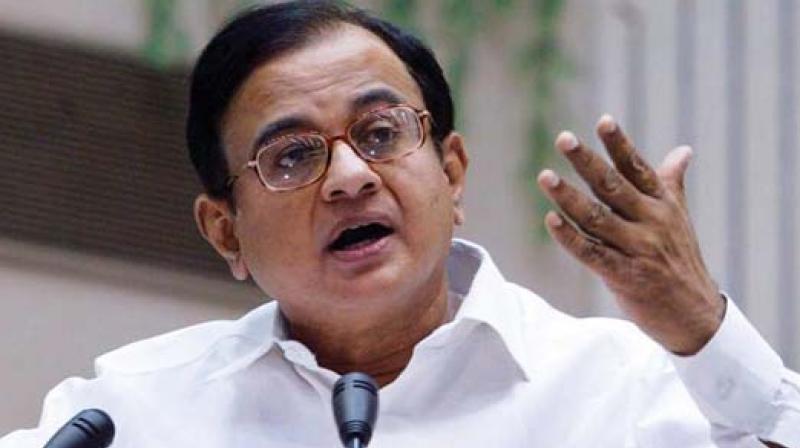Chidambaram case: Ensure justice is done, not delayed

The chief justice of India and his Supreme Court may not view the matter of hearing former finance and home minister P. Chidambaram’s plea for protection from arrest as sitting on the horns of a moral dilemma. The case would ideally be viewed strictly in legal terms, and regardless of how it has been blown up in the political firmament. Already, the highest judiciary has deviated from what has come to be viewed as normal in India of the high and mighty being heard instantly and relief being given to them at once as a matter of right. In following the rulebook, the court may have asserted its autonomy in the face of the influence of powerful politicians, but there is a long way to go before we will hear how this sensationalised case of Mr Chidambaram (and his son) in the INX Media case and other cases is finally ruled upon.
In the forefront of this complex issue is the matter of interim protection from arrest of one of those said to be an accused. In Indian jurisprudence, even an accused has to be viewed as innocent until proven guilty. Various arms of the executive are tasked with proving guilt; although under the strictest provisions of the new Prevention of Corruption Act it is the accused who has to prove his innocence. Bail is a civil right of even the most hardened criminal and may be granted in the normal course save in exceptional circumstances where the accused may be seen as capable of “fleeing from justice”. Even the reported silence of the accused in the face of interrogation is guaranteed as a fundamental right of an individual. However, there are inferences to be drawn from silence or the intractability of the mighty who may consider the law to be above them.
Why the cases against the former finance minister, accused of financial crimes on a quid pro quo basis — some of which involve his son who is also a sitting Member of Parliament — are getting even more complex is because of the inherent delays in the justice delivery system. The accused cannot be held responsible for this. Mr Chidambaram who was incommunicado for a while, leading even to lookout notices against him, surfaced briefly to lay down a challenge regarding the INX Media case and left. Considering the circumstances of the cases, it would be ideal if the top court were to rule that they be fast-tracked so that verdicts are delivered in a reasonable time frame and not after a couple of decades as in the corruption cases involving J. Jayalalithaa.
The only way justice can be rendered in cases of financial skulduggery behind corruption in high places is if they are presented properly in court based on hard evidence and verdicts delivered despite the seeming complexity. The courts would also have to ensure that the application of the law is the same for all and not subject to any sense of entitlement among the powerful, irrespective of whether they are in the ruling party or the Opposition.

